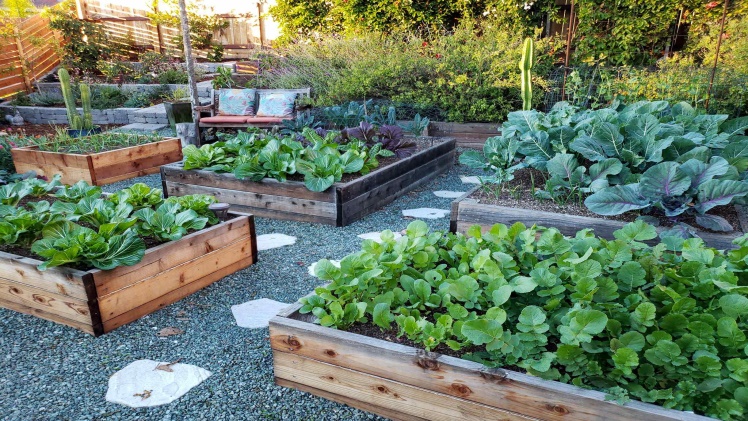If you’re looking to grow your own vegetables at home, using a garden bed is a great option. Not only does it provide a contained space for your plants to grow, but it also offers a variety of benefits. You can learn all the tips here to create a successful garden.
Improved Soil Quality
One of the key benefits of using garden bed for vegetable gardening is improved soil quality. You can use a raised garden bed to create a custom soil mix that is perfect for your plants. You can incorporate organic material, such compost or aged manure, to improve the soil’s structure and nutrient content.
Better Drainage
When you use a garden bed for vegetable gardening, you can control the drainage of the soil. This is especially important if you live in an area with heavy rainfall or poor soil quality. A garden bed can be elevated, allowing water to drain away from the plant roots, preventing waterlogging and root rot.
Pest and Weed Control
Using a garden bed for vegetable gardening provides an excellent opportunity to control pests and weeds. Since the soil is contained, it’s easier to prevent weed growth by adding a layer of mulch or using weed barriers.
Longer Growing Season
By using a garden bed for vegetable gardening, you can extend your growing season. This is because garden beds warm up faster than the ground, allowing you to plant earlier in the spring and continue growing later into the fall. Additionally, you can use season-extending tools such as row covers, cloches, or hoop houses to further extend your growing season.
Easy Access
Using a garden bed for vegetable gardening also offers easy access to your plants. By elevating the soil, you can avoid bending or kneeling, making it easier to plant, weed, and harvest. This is especially important if you have mobility issues or if you simply want to avoid back pain while gardening.
Tips for Creating a Successful Garden Bed
- Choose the Right Location: When selecting a location for your garden bed, choose a spot that receives at least six hours of sunlight per day. Additionally, make sure the area is level and well-drained.
- Preparing the Soil: In order to get the soil ready for planting, remove any rocks, weeds, or debris. Then, add a layer of organic material, such as aged manure or compost, to enhance soil quality.
- Select the Right Plants: Choose plants that are suitable for your climate, soil, and sunlight conditions. If you’re new to gardening, start with easy-to-grow vegetables, such as tomatoes, cucumbers, or lettuce.
- Water Regularly: Water your plants regularly to keep them hydrated. The type of plant will determine how often to water it. plant and your climate conditions. Use a soaker hose or drip irrigation to prevent soaking the leaves, which can cause fungi to spread.
- Mulch: Add a layer of organic mulch, such as straw or leaves, around your plants to help retain moisture, prevent weed growth, and regulate soil temperature. Mulch acts as a protective barrier, shielding the soil and roots from the sun and other elements.
- Weeding: Weeding is an essential part of vegetable gardening. By removing unwanted weeds, you ensure that your plants have enough space, nutrients, and water to grow properly.
- Pest Control: Pest control is another important aspect of vegetable gardening. Pests such as aphids, caterpillars, and beetles can quickly destroy your plants, leaving you with a poor harvest or none at all. To control pests, try using natural methods like companion planting, which involves planting certain plants together that repel pests.
- Harvesting: Harvesting your vegetables at the right time is crucial for their flavor and nutritional value. Different vegetables have different harvesting times, so it’s important to know when to harvest each type. Harvesting your vegetables regularly also encourages new growth and helps prevent overcrowding in your garden bed.
Vegetable gardening in a garden bed offers many benefits, including improved soil quality, better drainage, pest and weed control, a longer growing season, and easy access. By following these tips and utilizing tools like raised garden bed plans , raised garden beds, garden boxes, and raised planter boxes, you can create a successful and bountiful vegetable garden in your own backyard dstvportal.

